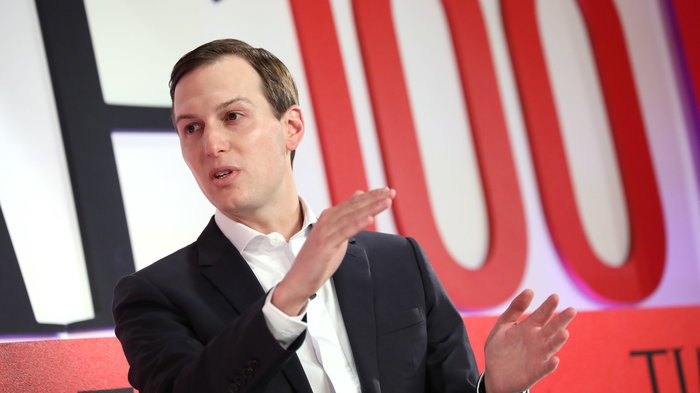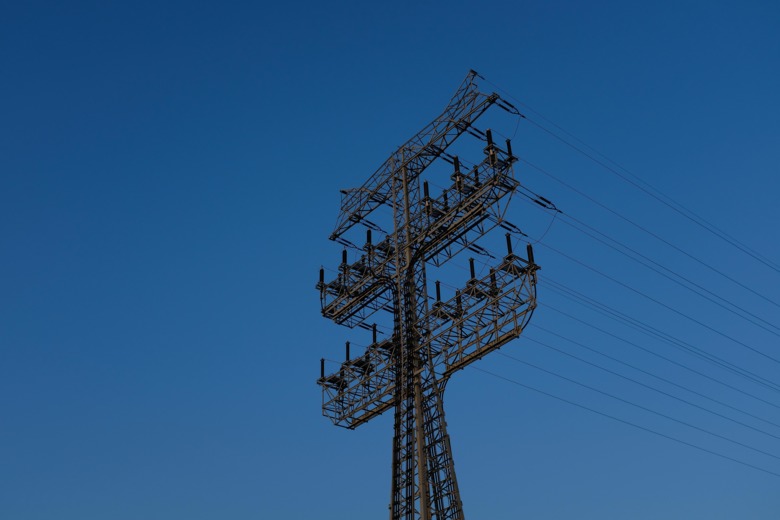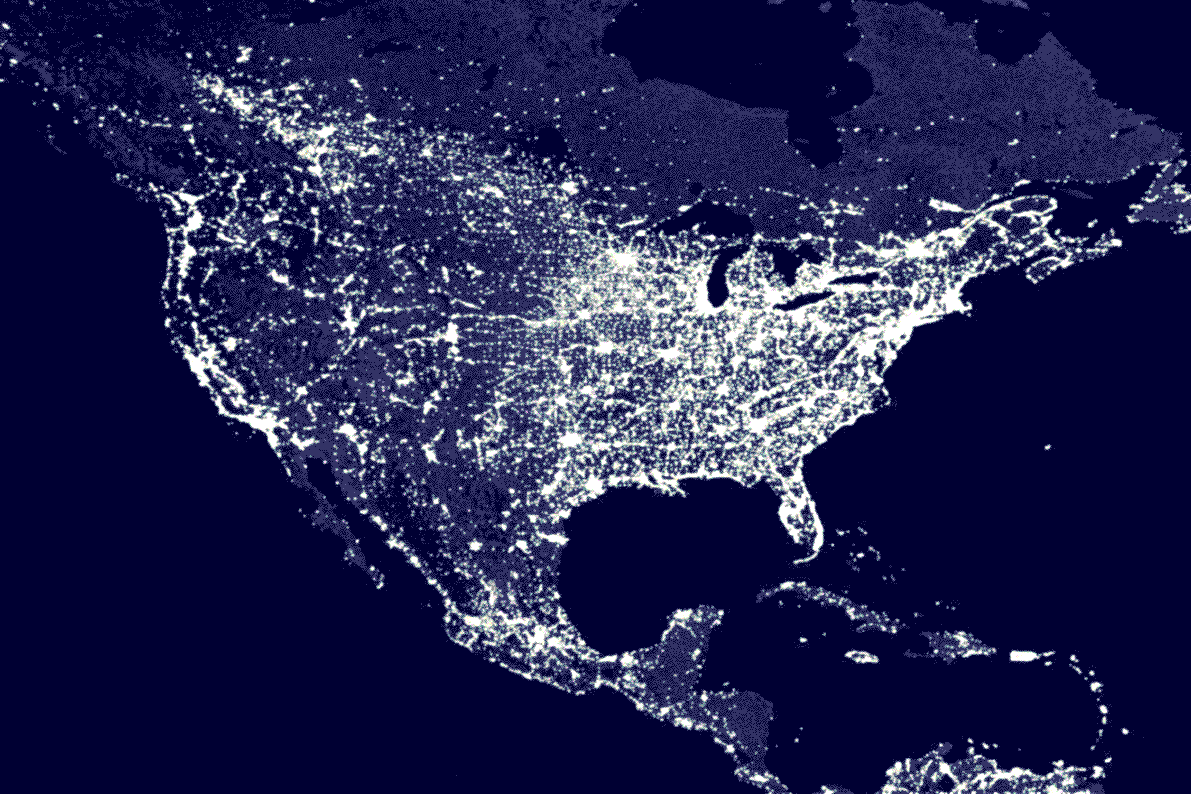
by Michael Bailey | Apr 26, 2019 | Cyber Warfare & State Security, Politics |

Jared Kushner spoke about Russian election interference during the Time 100 Summit 2019 in New York City. Credit: Brian Ach/Getty Images for Time
I’m pretty much done characterizing Donald Trump. There’s long been nothing more to learn about this man that people don’t already know.
Jared Kushner, on the other hand, is a different story. He lays low and has an ounce of measured judgement about when to open his mouth in public. Combine that with his immediate proximity to Trump on all fronts, and the curiosity of his influence, if any, is strong.
To date, Kushner has done nothing to distinguish himself from the tribe. That does not mean he isn’t instrumental behind the scenes, and a meaningful influencer of how our country moves forward, or backward.
At best, he is what he projects-a docile, entitled elite, with little more than a dilettante’s interest in mixing it up with politics or governance. At worst, he is a charade of a diplomat concealing a hard-core, cold blooded capitalist with malleable ethical and legal boundaries, and questionable instincts to anchor thoughtful judgement on complex issues.
Even if he is parts of both, his rare public comments are not encouraging.
FACT CHECK: Russian Interference Went Far Beyond ‘Facebook Ads’ Kushner Described
In a rare public appearance on Tuesday, Jared Kushner, President Trump’s son-in-law and one of his closest advisers, said that the multiple investigations into Russian election interference have been more harmful to American democracy than the original interference itself.
“The whole thing is just a big distraction for the country,” Kushner said at a Time magazine event in New York City. “You look at what Russia did — buying some Facebook ads to try and sow dissent. And it’s a terrible thing, but I think the investigation and all the speculation that’s happened over the past two years has had a much harsher impact on our democracy.”
In describing Russia’s efforts leading up to the 2016 election, Kushner emphasized what he called the relatively small amount of money Russian agents spent advertising on social media.
“They said they spent $160,000. I spent $160,000 on Facebook in three hours during the campaign,” Kushner said. “If you look at the magnitude of what they did and what they accomplished, I think the ensuing investigations have been way more harmful to our country.”
Fact check: Were Facebook ads the extent of Russian election interference?
The short answer: No.
The long answer: The redacted version of Justice Department special counsel Robert Mueller’s report revealed a years-long plot by the Russian government to interfere in the U.S. that investigators called “sweeping and systemic.”
As to the amount of money expended on Facebook ads, the company said Russian operatives did spend less than $200,000 on advertising on the platform — but that doesn’t account for the organic content the operatives created and shared.
Not only were influence specialists within Russia’s Internet Research Agency purchasing normal advertisements, they were authoring their own posts, memes and other content as they posed as American users.
They also reached out to politically active Americans, posing as like-minded supporters, and helped organize rallies and other events in the real world.
Facebook says the Internet Research Agency may have reached as many as 126 million people. Separately, Twitter announced that about 1.4 million people may have been in contact with IRA-controlled accounts.
The social media aspect of the interference was just one dimension. Cyberattackers also went after political victims in the United States — whose emails and other data were released publicly to embarrass them — and state elections officials and other targets. And there may have been other avenues of interference as well.
The origins of the scheme
Russian operatives lied to get into the U.S. as early as 2014 on “intelligence-gathering missions.” They traveled across the country to get the lay of the land before ramping up efforts to try to interfere with American politics.
By September 2016, two months before the U.S. presidential election, the Internet Research Agency was working with an overall monthly budget that reached over $1.25 million. It employed hundreds of employees, a graphics department, a data analysis department, a search-engine optimization department, an IT department and a finance department, according to an indictment filed last year by Mueller’s team.
And it hasn’t stopped.
The U.S. military reportedly blocked the Internet access of the IRA during last year’s midterm elections to keep it from interfering with the midterm election. U.S. Cyber Command also targeted Russian cyber operatives, according to a report by The New York Times, with direct messages letting them know that American intelligence was tracking them.
And in October, a Russian woman was accused, according to a criminal complaint filed in federal court, of conspiring to sow discord and division in the U.S political system.
That conspiracy, the complaint said, “continues to this day.”

by Michael Bailey | Mar 18, 2018 | Cyber Warfare & State Security, Technology/Internet, World Events |

I have lots of company joining me, exhausted with the ongoing news cycles for the last year and a half. It’s not subsiding any time soon. I’m thinking years. Given the American culture, and habits of, news reporting, its consumption, buying it, selling it, sponsoring it, and distributing it, I see an almost constant peaking of news events on any, and every, level and scale, offered up almost daily, with no breather.
The comic parodies mocking the overwrought “Breaking News” interruption on cable news have long lost their humor yield. In real life, it’s exhausting, and almost surreal. There literally has not been a break from “breaking news.”
Maybe I’m just feeling vulnerable, but it feels like events are getting really serious now. There’s a convergence of multiple news happenings, any one of which alone, has global implications, coming up in days, or weeks, maybe a month, that’s going to put a collective hurt on the people, the governments, and the infrastructure in this country. It feels party-less, like, what could be about to happen, is about to mutate into a life of its own, with tentacles, and reach beyond where any forces fighting it, on either side of the oceans, can ever extend. A soulless enemy of cancerous mistrust that we made together as humanity into an incurable disease.
The U.S. power grid has been targeted before by hackers. Assessing the risk is years old, but now they’re officially in, and we’re sitting ducks. It is already known, that the level of consequence to the U.S. today, right now, would be colossal. Based on that fact alone, we are in big, big trouble. Grand-spectacle-wise, we lose any war before it even starts. Period. Done. Well-Done.
Three articles below. All chilling. Make special note of the Vocative article, from April 2017.
What Does It Mean to Hack an Electrical Grid?-Slate
Cyberattacks Put Russian Fingers on the Switch at Power Plants, U.S. Says – The New York Times
Military Is Ramping Up Preparation For Major U.S. Power Grid Hack-Vocativ

by Michael Bailey | May 13, 2017 | Crime & Punishment, Cyber Warfare & State Security, Technology/Internet |
I’ve been a Mac person since 1993. There was never a question for me. Since that time, and after Microsoft launched its first Windows platform, the main reason individuals and companies chose Microsoft over Mac, was cost savings, and, where applicable, compatibility with specialized business software. Beyond that, the arguments of a quality interface and superior build of Macs were lost on anyone who’s eyes glazed over after two technical words in a sentence, or grossly misunderstood that Macs were only for artists.
But that was then. This is now. Enter the online age of malware, identity theft, and extortion.
Ransomeware is the nastiest thing in cyberspace, short of having a loved one taken hostage. It’s been going on for years. It’s getting worse, and it will get even more worse, when it breaks out further in the U.S. I already know someone here in CT, who has been victimized by ransomeware. A local documentary film producer who had his media files locked until he forked over 2K in bitcoin.
If you own a company that must use software which has absolutely no reasonable second option that is compatible with a Mac, then you’ve painted yourself into a corner, and are stuck in a very dangerous place. It won’t be easy, will be expensive, and will take time, but you and your company need to plan an exit strategy out of Windows now. (No pun intended.) Pay now, or pay much more later.
If you are a company, or an individual, who is not reliant on Windows for specific software, and has reasonable software options on the Mac platform, then, I’m not sure I can find any logical reason for you to stick with Microsoft.
Yes, it will be a large annoyance, and increased cost to switch over, but unless you are impossibly strapped for cash, you are playing with fire, and ultimately running the risk of spending/losing so much more than the initial expense of a changeover.
Windows has always been inferior to Mac’s OS against security threats. Don’t take my word for it. Read up on your own. The security gulf will likely never be narrowed because the native Mac architecture is designed ground-up to protect your files more.
As far as I’m concerned, the justification for dumping Windows, has never been more compelling. With ransomeware and increased security threats sweeping the globe, I don’t know why anyone would even consider buying a PC over a Mac today.
If any of my FB friends here need help or advice to switch over, I’m happy to help you make the switch. Just let me know, and we’ll talk off line.




